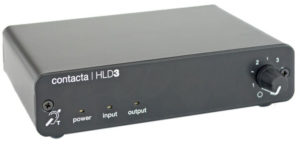by Neil Bauman, Ph.D.
Here’s an interesting question I recently received. “I am hearing impaired and need a VCO cell phone. Can you help me?”
For anyone who doesn’t know about Voice Carry Over, VCO is a technology that allows people who cannot hear on the phone, but have good speech to use a phone. Here’s how it works. You dial the relay operator (711), and she connects you to the person you want to talk to. Then, when your party speaks, the relay operator types out what he says. You read this on the two-line display on your special VCO phone. To reply, you just speak in your normal voice. With VCO, you can use a phone, even if you can’t hear a sound!
Landline VCO phones are readily available, but, as far as I know at this time, there are no cell phones made specifically for VCO operation. However, all is not lost. You can still have cell phone VCO if you do the following two things.
First, you need a cell phone that is TTY compatible. (You may already have a TTY-compatible cell phone. If you don’t know whether it is TTY-compatible or not, ask your cell phone provider.) If you don’t already have a TTY-compatible cell phone, ask your cell phone provider which of their phones are TTY-compatible. For example, as of today, most, if not all, of Verizon’s new phones are TTY-compatible.
Incidentally, I suggest you stay away from Nokia cell phones as long as they require a special adaptor that the other phones don’t require. This is one extra part that can break down or get lost. As a result, you can make life simpler if you avoid Nokia cell phones at this time.
Second, you need a Krown VCO device. Krown has three devices that will work to convert a TTY-compatible cell phone into a VCO cell phone:
1. the PVCO
2. the PVCO-C
3. the PocketComm
I suggest getting either the PVCO-C or the PocketComm as the PVCO can’t plug directly into your cell phone. Instead, it has to be acoustically coupled. As a result, extraneous noise can get into the phone and mess up the signal.
The PVCO-C and the PocketComm both can be plugged directly into your cell phone’s headset jack (assuming that your cell phone has the standard 2.5 mm headset jack).
The difference between the PVCO-C and the PocketComm is that the PocketComm is also a full-blown TTY (teletype) as well as a VCO adaptor.
Since they both cost exactly the same ($189.00 plus $12.00 shipping from Krown), I’d suggest the PocketComm as you get more “goodies” for the same price. You never know when you might want full TTY capability in the future.
You can view (and purchase) the PCVO-C from Krown’s website at http://www.krowntty.com/html/products/pvco2.html. Likewise, you can view (and purchase) the PocketComm at http://www.krowntty.com/html/products/pocketcomm.html.


